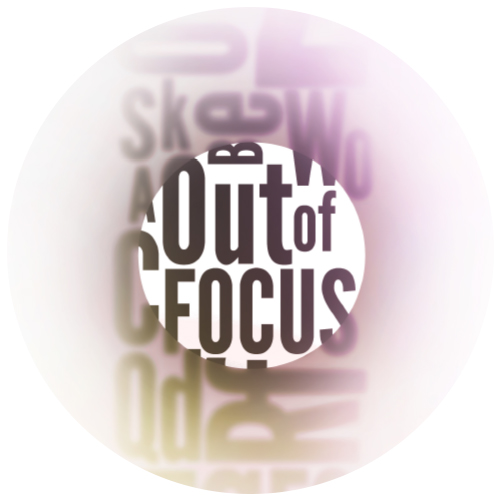Out of Focus: Chapter 2
| October 29, 2024A light bulb lit up in my mind. My daughter was exactly like me. If she had ADHD, did that mean I did, too?

When my oldest daughter turned five, we moved back to America after our stint in kollel in Maalot Dafna, in Israel. The move was incredibly challenging for her. I thought kids were resilient and flexible, but the way she regressed to bed wetting and suddenly began weeping over every little incident alarmed me, and I took her to see a therapist that RELIEF recommended.
During the intake interview, after I’d detailed my daughter’s difficulties adjusting to the move, the social worker asked, “Are there any diagnoses in the family?”
“Two of my brothers have ADHD,” I told her. “They’re really, really wild.”
She began asking questions about my daughter’s personal management, her organizational abilities. Does she dress herself in the mornings? How long does it take her?
I thought of the number of times I’d left my daughter’s bedroom in the morning with instructions for her to “get dressed quickly, ’cos it’s already eight, and your carpool ride will be here in ten minutes,” only to return and see her still in pajamas, sprawled across the bed, immersed in a picture book. She’d always look up at me with confusion in her green eyes and say, “Sorry, Mommy, it was so interesting,” when I raged at her in frustration.
“It sounds like your family would benefit from some family therapy. But before we do that, I think the correct thing to do would be to see a neurologist, as I first want to rule out ADHD,” the social worker said. “I’m seeing some symptoms of it in your descriptions of your daughter.”
I was surprised. In my mind, ADHD meant little boys who couldn’t sit still. From the moment they could walk, my brothers with ADHD used to run on top of the furniture instead of walking along the floor. What connection did ADHD have with my placid, space-cadet daughter?
I didn’t expect her to get an ADHD diagnosis. But that’s what the neurologist we saw a few months later diagnosed her with.
When she did, a light bulb lit up in my mind. My daughter was exactly like me. If she had ADHD, did that mean I did, too?
I raised the point with my husband. “I definitely think you have it,” he said.
My father-in-law is a psychiatrist, and I scoffed at my husband. “A psychiatry degree isn’t hereditary, you know.”
But then things exploded one Shabbos morning, when I went to the hot plate after Kiddush and hamotzi to bring the pans of schnitzel and potato kugel to the table and saw, to my horror, that the hot plate was bare. I’d completely forgotten to heat up the food.
I was 32 years old. And I was having episodes of forgetfulness like I was 82.
“Okay,” I conceded. “I’m going to see a neurologist. There’s clearly something wrong with my brain.”
I was sure the neurologist would laugh me out of his office and tell me that just because I was a bad balabuste didn’t mean I had ADHD.
He didn’t.
He asked me a million questions about my functioning in childhood, my functioning now. At the end of the session, he said, “Wow, I don’t know how you went this long without getting a diagnosis.”
Even as I stood at the subway station holding my session summary and a prescription for Concerta, I couldn’t believe it. I don’t have ADHD. I just have trouble getting my act together. I’m lazy and irresponsible. This is a middos thing. I need to push myself harder. Labeling someone as having ADHD is making excuses for their flaws, a symptom of modern society’s attempts to divest ourselves of responsibility.
When I got home, I had an hour until carpool. I sank into my black leather computer chair and told myself I’d spend five minutes googling ADHD before tackling supper.
I looked up 45 minutes later — shocked that 45 minutes had even passed. Where did the time go?
I read a whole lot of stuff about ADHD in women and girls. Turns out we’re often overlooked when it comes to ADHD diagnoses because we usually present with inattentive ADHD, the type that makes you more docile, dreamy, and disorganized, rather than fidgety, loud, and hyperactive. Also, learning difficulties, a common ADHD comorbidity, don’t affect girls as much as boys. That explained how I could have this diagnosis despite the fact that I’d always been a straight-A student. I was always obedient and eager to please, so much so that flaws like forgetting homework and chronic lateness had been overlooked.
I also learned that many girls who are both academic and have ADHD aren’t really affected by it until adulthood, when they struggle to meet the demands of college and living as adults in a dorm. And for frum women, when they marry and have to run a home.
Hmmm….
I was still skeptical, though. That night, I filled out every online ADHD questionnaire I came across.
Do you feel as if life is out of control, and that it’s impossible to meet demands? Yes!
Are you clueless as to how others manage to lead consistent, regular lives? Oh, yes!
Do you hesitate to have people over to your house because you’re ashamed of the mess? Yes, yes, yes. Whenever neighbors knocked on my door to borrow something, I’d open the door a crack, embarrassed for them to see what my house looked like.
Do you feel like you are “passing for normal,” but you are really an impostor? Definitely, yes! I never stepped out of the house without at least eyeliner, lipstick, and a sheitel, even for carpool runs, and I loved matching my accessories to my outfit. The mismatch between the way I looked and the way my house looked was stark; from the way I looked, I was one of the last people you’d expect to have such a chaotic home.
Do you have difficulty getting started on something, and once you’re involved in it, find it hard to stop? Yes, painfully hard!
I was scoring high on every test. After each one, I saw the same message flash across my screen: “This isn’t a diagnostic tool, but there’s a high chance you may have ADHD, and it’s recommended you go for professional assessment.”
I began to consider the option that I was in denial.
I read article after article about women with ADHD.
Bingo!
Everything was starting to make sense.
My challenge in keeping house was a direct result of some of the characteristics of ADHD, primarily poor executive functioning. I had a poor ability to plan, no concept of time, difficulty prioritizing, and my biggest vice: I was a procrastinator. I put off anything that was boring, like hanging out the laundry; and anything that made me stressed, like calling my kid’s teacher about his bad behavior.
Wow. So I wasn’t just a slob. Lazy. A bit nebach. Less capable than most. I just had ADHD. My brain wasn’t naturally wired to be organized.
I felt liberated. Not completely liberated — I did have a sneering voice in my head that insisted I’d just given my bad middos a fancy label and this was all a ploy of the yetzer hara.
And part of me was also scared. If I had ADHD, then the magical day — full of streamers and balloons and glitter, when I would finally get my act together — would never come. If there was a neurological reason to why I was disorganized, then telling myself to work harder, promising myself that next week would be better, wouldn’t help.
But maybe instead of fighting my diagnosis, I could learn to work with it?
Well, one thing I’d always been was a good student. If I had ADHD, I was going to find out all about it, and work out how to live with it.
To be continued…
(Originally featured in Family First, Issue 916)
Oops! We could not locate your form.


